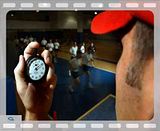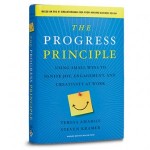 I was reminded of the classic book yesterday while Skyping with a young manager who trains employees for a multinational Fortune 100 consumer electronics firm in the Washington, D.C., area. She asked me if I’d ever read the book—well yes! We laughed. In 1982 when it was first published!
I was reminded of the classic book yesterday while Skyping with a young manager who trains employees for a multinational Fortune 100 consumer electronics firm in the Washington, D.C., area. She asked me if I’d ever read the book—well yes! We laughed. In 1982 when it was first published!
Hearing this young manager’s perspectives on the book led me to dust off my copy and peruse this forgotten gem. Since reading it nearly 30 years ago, I’ve worked for nine different managers. Which ones were most effective? Which ones elicited the best from their staff? Which ones ran productive, prosperous and happy shops? Yep, it’s the ones who employed the One Minute Management techniques: One Minute Goals, One Minute Praisings, and One Minute Reprimands. They weren’t the ones who spent their days sequestered in their closed offices not providing any feedback—good or bad.
“The best minute I spend is the one I invest in people.”
Written as a parable told through the eyes of a young manager’s search for the best leadership and management skills, one of the key elements of One Minute Management is MBWA (management by walking around), which was coined by Tom Peters around the same time in his best-selling In Search of Excellence.
“Goals begin behaviors; consequences maintain behaviors.”
Good performance begins with clear goals and expectations. These are set during a One Minute Goals meeting. Here, the manager and the employee agree on goals, write them down and then occasionally review them to ensure that they are being met. Consequences are reviewed too—for positive and negative outcomes. The meetings are longer than one minute, but are short and to the point.
MBWA is critical to techniques two and three. Walking around helps a manager catch someone doing something right and provides the opportunity to give One Minute Praisings. The manager praises the employee on the spot, telling him specifically what he did correctly and how that positively impacts the company’s business. Then, the manager lets the employee savor the moment, and finishes with a handshake.
“Feedback is the breakfast of champions.”
The third technique is the One Minute Reprimand. Being honest and accountable with those around you involves reprimanding when a wrong has occurred. The first step is to reprimand immediately and specifically. This is the same as the praise technique, and it holds an important aspect of the goals technique: it enables an understanding of goals and responsibilities and how to complete them correctly. It’s critical that following the reprimand, you shake hands and remind the person that it was simply their performance that you did not like—not them as a person. The handshake is important and reinforces that you believe in the person and their abilities.
“People who feel good about themselves, produce good results.”
The One Minute Manager is one of the best selling business books of all time. For nearly 30 years, millions of managers in companies small and large worldwide have benefitted from the simple techniques laid out by authors Kenneth Blanchard and Spencer Johnson.
It’s a quick read that lays out simple and easy-to-use basic management skills (that are used less often that you would think). You can differentiate yourself from most managers by actually using them!
If you’re not regularly using these simple techniques, I challenge you to try them out and see what changes with your team. Call or email me for a 30-minute leadership coaching session. Let’s put the One Minute Management techniques to work for you!



 Do you stay out of your employees’ way and allow them to problem solve? If not, consider that you are likely the sort of boss who is a top-down, micromanager. The command-and-control model works well in the military but results in tremendous dysfunction for work teams. Hierarchical control often results in a vicious cycle in which the work team is rendered ineffective and unvalued.
Do you stay out of your employees’ way and allow them to problem solve? If not, consider that you are likely the sort of boss who is a top-down, micromanager. The command-and-control model works well in the military but results in tremendous dysfunction for work teams. Hierarchical control often results in a vicious cycle in which the work team is rendered ineffective and unvalued. Take care to not give your followers an acid bath—that’s what Maurer (1994) calls harsh feedback. Consider that the word feedback takes its root in the word “feed.” Feeding allows us to grow, and if we enjoy healthy food, our bodies are nourished. Consider healthy feedback as a tool for positive change, increased self-awareness, and (when delivered appropriately) allows us to grow and be nourished.
Take care to not give your followers an acid bath—that’s what Maurer (1994) calls harsh feedback. Consider that the word feedback takes its root in the word “feed.” Feeding allows us to grow, and if we enjoy healthy food, our bodies are nourished. Consider healthy feedback as a tool for positive change, increased self-awareness, and (when delivered appropriately) allows us to grow and be nourished.


